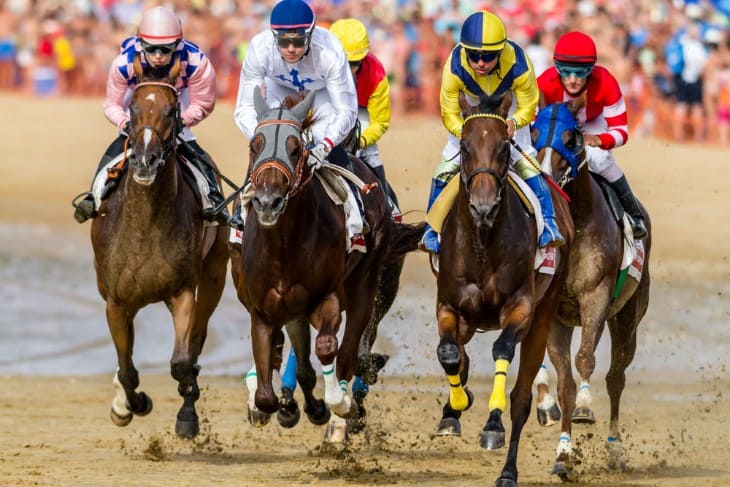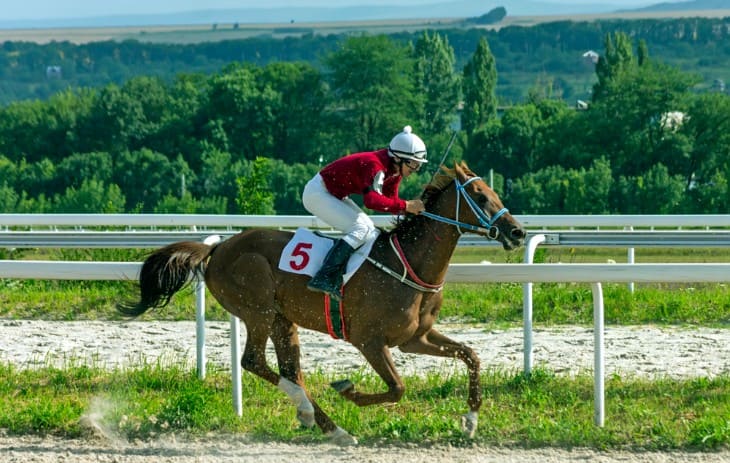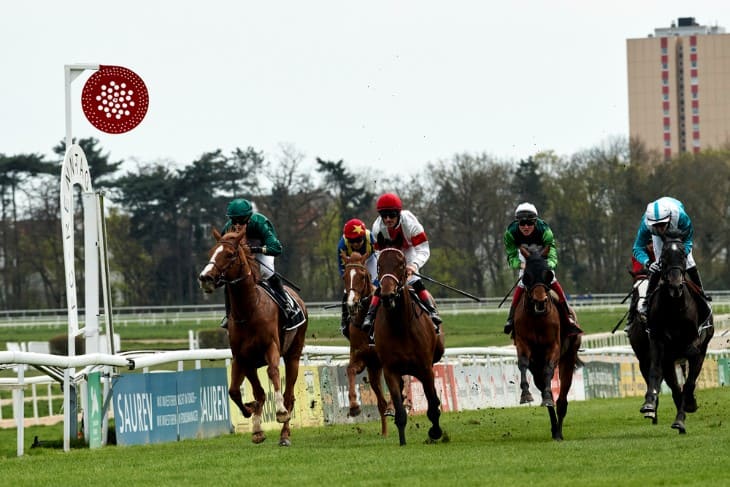- The United Kingdom: A Pioneering Nation in Horse Racing
- The United States: Diversity and Prestige in Horse Racing
- Australia: A Down Under Perspective on Horse Racing
- Japan: Technological Innovation and Tradition in Racing
- Horse Racing and Betting: A Comparative Global Overview
- Horse Racing in France: A Blend of Elegance and Competition
- The United Arab Emirates: Luxury and Horse Racing
- Horse Racing in Hong Kong: Economic and Cultural Aspects
- Irish Horse Racing: Tradition and Modernity
- Conclusion
The United Kingdom: A Pioneering Nation in Horse Racing
The genesis of horse racing in Britain can be traced to the 17th century, with the establishment of formal racing under the reign of Queen Anne. Since then, it has evolved into a significant cultural and economic fixture. The UK is home to some of the world's most iconic racecourses, including Ascot, Cheltenham, and Aintree, where legendary races like The Grand National and The Royal Ascot are held.
British horse racing is not just a sport but an institution, intricately linked with the national identity. It encompasses a range of flat and jump races, attracting participants and spectators from various strata of society. The industry is also a major employer and contributes significantly to the UK's economy. It's an amalgamation of sporting excellence, aristocratic tradition, and popular culture, making it unique in the global horse racing landscape.
The United States: Diversity and Prestige in Horse Racing
In the United States, horse racing presents a tapestry of diversity and prestige. It's a sport that has adapted to the vast geographical and cultural landscape of the country. The U.S. horse racing scene is renowned for its Triple Crown series, consisting of the Kentucky Derby, Preakness Stakes, and Belmont Stakes. These races not only test the mettle of thoroughbreds but also capture the imagination of the nation, transcending the sport itself to become cultural phenomena.
American horse racing is characterized by both flat racing and harness racing, each with its distinct fanbase and traditions. Flat racing, particularly Thoroughbred racing, dominates the scene with its high-profile events and substantial prize money. On the other hand, harness racing, with its unique chariot-like sulky carts, offers a different spectacle and has a dedicated following. The industry in the U.S. is a significant economic driver, contributing to job creation and tourism. It's also at the forefront of equine research and welfare, continually advancing the care and management of racehorses.
Australia: A Down Under Perspective on Horse Racing
Australia's horse racing industry is a vibrant and integral part of the nation's sporting culture. The sport, introduced in the early colonial period, has burgeoned into a significant social and economic activity. Australia is renowned for hosting one of the richest horse races in the world, the Melbourne Cup. Dubbed 'the race that stops a nation', the Melbourne Cup is a testament to the country's deep-rooted love for horse racing. It's not just a sporting event but a national celebration, reflecting the Australian spirit of camaraderie and competition.
The Australian horse racing scene is diverse, featuring flat racing, harness racing, and even greyhound racing, each enjoying popularity and support. The industry has a substantial economic footprint, contributing significantly to job creation and the economy. Australian horse racing is also known for its stringent regulations and commitment to horse welfare, ensuring ethical practices are upheld within the sport. This commitment underlines the importance of horse racing in Australian society, where it is seen as more than just a pastime but a cherished tradition.

Japan: Technological Innovation and Tradition in Racing
In Japan, horse racing blends technological innovation with deep-rooted tradition, creating a unique and dynamic industry. Japanese horse racing, known locally as Keiba, has a storied history dating back to the late 1800s. The sport has evolved significantly, with Japan now considered a powerhouse in the global racing scene. Key to this evolution is the integration of advanced technology in race tracking, betting systems, and horse training. This technological edge has not only enhanced the viewing experience for fans but also improved the safety and performance of the horses.
- Technological advancements in Japanese horse racing:
- Sophisticated race tracking and timing systems for accurate results.
- Advanced betting platforms offering a seamless and secure betting experience.
- Innovative training methods and facilities, including state-of-the-art training centres.
Yet, despite these modern developments, traditional elements remain at the heart of Japanese horse racing. The sport is deeply intertwined with Japanese culture, featuring ceremonial aspects and a strong emphasis on horsemanship and respect for the equine athletes. Japan hosts several prestigious races, including the Japan Cup, which attracts international attention. These events are not just sporting spectacles but also cultural celebrations, showcasing the harmonious blend of the old and the new in Japanese horse racing.
Horse Racing and Betting: A Comparative Global Overview
Horse racing and betting are inextricably linked, with the betting industry being a significant component of horse racing's appeal and economic impact. This relationship varies across different countries, reflecting cultural attitudes towards gambling and the regulatory environment. In the United Kingdom, betting is an integral part of the horse racing experience, with bookmakers and online betting platforms offering a wide range of betting options. The betting industry contributes significantly to the economy and the funding of the sport.
- Betting practices in major horse racing countries:
- The UK: A variety of betting options with a focus on bookmakers and online platforms.
- The US: Emphasis on pari-mutuel betting, with state-specific regulations.
- Australia: A mix of traditional and online betting, with a strong culture of betting on major races like the Melbourne Cup.
- Japan: Government-controlled betting systems with specific betting types allowed.
The United States predominantly uses a pari-mutuel betting system, where bets are pooled and shared among winners, differing from the fixed-odds betting common in the UK and Australia. In Japan, the betting system is tightly controlled by the government, reflecting the country's cautious approach to gambling. These varying approaches to betting not only impact the economics of the sport but also shape the horse racing culture in each country, influencing how races are viewed and celebrated.
Horse Racing in France: A Blend of Elegance and Competition
France's contribution to horse racing is marked by a blend of elegance and fierce competition, making it a significant player in the international racing scene. The country is renowned for its prestigious races such as the Prix de l'Arc de Triomphe, held in Paris, which is one of Europe's most celebrated horse racing events. French horse racing is not just about the sport; it's a cultural event, often accompanied by fashion shows and social gatherings, reflecting the French flair for combining sport with style.
The French horse racing industry is also known for its rigorous breeding programmes, contributing some of the finest thoroughbreds in the world. The country's approach to horse training and breeding is steeped in tradition yet incorporates modern techniques, ensuring the health and well-being of the horses. This commitment to excellence extends to the racecourses themselves, with facilities like Longchamp and Chantilly being as famous for their architectural beauty as they are for the quality of racing they host.
The United Arab Emirates: Luxury and Horse Racing
The United Arab Emirates (UAE) has emerged as a luxurious and influential hub in the world of horse racing. The UAE's rise in the horse racing domain is epitomised by the Dubai World Cup, one of the richest horse races in the world. The event, held at the Meydan Racecourse, attracts the finest horses, jockeys, and trainers from across the globe. Horse racing in the UAE is synonymous with opulence and grandeur, reflecting the nation's rapid modernisation and wealth.
- Unique aspects of horse racing in the UAE:
- Hosting some of the world's richest races, including the Dubai World Cup.
- State-of-the-art facilities and racecourses, such as the Meydan Racecourse.
- A focus on international participation, attracting global racing talent.
Despite its relatively recent entry into the sport, the UAE has quickly established itself as a key player, investing heavily in infrastructure and horse breeding. The country's approach to horse racing is a testament to its ambition and vision, combining traditional Arab equestrian heritage with a modern, global perspective. This blend has not only elevated the sport within the region but has also significantly impacted the international horse racing landscape.

Horse Racing in Hong Kong: Economic and Cultural Aspects
Horse racing in Hong Kong represents a unique amalgamation of economic impact and cultural significance. The sport, under the aegis of the Hong Kong Jockey Club, is not just a popular pastime but a major contributor to the local economy. The revenue generated from horse racing, particularly through betting, is substantial, and a significant portion of it is channelled back into community projects and charities. This model positions the Hong Kong Jockey Club not only as a key player in the racing world but also as a major philanthropic entity.
- The economic and cultural impact of horse racing in Hong Kong:
- Horse racing is a major source of charitable donations through the Hong Kong Jockey Club.
- The sport is deeply ingrained in the cultural fabric, with races being major social events.
Culturally, horse racing in Hong Kong is more than a sport; it's a social phenomenon. Race days, especially those at the famous Sha Tin and Happy Valley racecourses, are celebrated with enthusiasm, drawing huge crowds not just for the sport but for the experience. The blend of international and local cultures at these events reflects Hong Kong's cosmopolitan nature. The sport's integration into Hong Kong's lifestyle is a testament to its enduring appeal and significance.
Irish Horse Racing: Tradition and Modernity
Irish horse racing stands out for its rich tradition and contribution to the breeding of some of the world's finest thoroughbreds. Ireland's history with horse racing goes back centuries, deeply rooted in the country's culture and rural life. The sport is celebrated across the country, from the iconic Curragh Racecourse in County Kildare to the scenic Galway Races in the west. Irish horse racing is characterized by a passion for the sport, seen in the enthusiastic participation of both rural and urban populations.
- Irish horse racing's unique features:
- A strong tradition in breeding high-quality thoroughbreds.
- Iconic racecourses and events with a blend of rural and urban appeal.
The modern Irish horse racing scene is a blend of tradition and innovation. While maintaining its rich heritage, the industry has embraced technological advancements, enhancing the racing experience and ensuring higher standards of safety and welfare for the horses. The Irish approach to horse racing, prioritising both tradition and modernity, has made it a respected and influential player on the international stage. The sport's integration into Irish culture is not just as a pastime but as a significant aspect of the national identity.
Conclusion
In conclusion, horse racing remains a dynamic and multifaceted sport, deeply embedded in the cultures of various nations. Each country brings its unique traditions, approaches, and innovations to the sport, contributing to a rich and diverse global tapestry. From the historic tracks of the United Kingdom and the economic impact in Hong Kong to the technological advancements in Japan and the luxurious spectacle in the UAE, horse racing is a sport that transcends borders and unites enthusiasts worldwide.
For more information:








